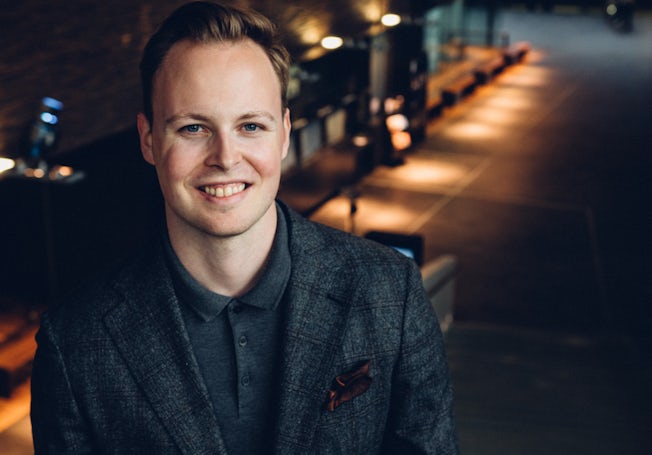Jesse Ketonen is the Director of Growth & Operations at content and influencer marketing agency Boksi. We recently caught up with Jesse to hear more about his role, his approach to maintaining a work/life balance, and how Boksi managed to increase sales threefold during 2020.
Please describe your job: What do you do?
I’m in charge of growth and operations. Basically, I explore every means possible to help us exceed our short and long term growth targets. At the moment, that’s tripling Boksi’s revenue every year. This big target is reverse engineered via small objectives, projects and tasks. It is part recce and part scaling up by building process and best practice through our operations. So far, I’ve focused on re-building our customer success team. I’ll be concentrating on improving our marketing and new business sales next.
Talk us through a typical day…
As you can imagine, start-up life means you are exposed to all aspects of the business. In the morning, I may be discussing the legal frameworks of our contracts and by noon I might have attended various internal team and client meetings. During my afternoon, I could be preparing materials for a board meeting and reviewing our marketing activities. Usually, I’ll spend time planning new development initiatives and delegating tasks in-house and to external partners. I’ll wrap the day up by going through next week’s to-do lists and handling media requests.
How do you maintain an effective work/life balance?
I keep myself focused on outputs rather than time-spent. I have a mutual flexibility agreement with my work. If work needs my time, I will give it when required for maximum output. On the other hand, when my personal life needs a little TLC, then work allows me that flexibility.
I am of the opinion it’s not so important to maintain the balance on any given day, but preferably on a weekly basis. I also adhere to certain principles in my life. For example I would never let work override a workout at the gym. You simply can’t be so busy that you wouldn’t take care of your health and well-being. Personal health, energy and happiness have a great and positive impact on your work performance too.
How has strategy changed at your company in the past 18 months?
We have changed our core product strategy from being an influencer marketing platform to being ridiculously competent at content sourcing from independent creators. We saw many brands struggling to keep up with the consumers’ demands when it came to content, especially on social media platforms.
We now have two products which fulfil the needs of both parties and our internationalisation strategy has a strong focus on delivering authentic branded content to brands globally. This shift in our strategic focus demands a lot from a tech, legal, customer relations, sales and marketing perspective. In short, the entire organisation is involved.
How has customer behaviour (or your clients’ customer behaviour) changed during the pandemic?
Under current circumstances people are primarily communicating through digital channels. We see clients also looking for more solutions to engage with their audiences through this medium as well. It is no longer a debate about whether or not digital is the most important focus area. However, budgets are tight. The solutions need to be cost-efficient. We note a clear demand and willingness to invest if this criteria is met. As a direct result, we managed to increase sales threefold during 2020.
What do you predict for the future?
Distance working will become more organised and standardised. Consumer and B2B purchasing behaviours will lean more towards digital touch points. Online platforms will change how we organise our lives and our work in more fundamental ways. Email will become a secondary communication tool. We will either seek greater flexible online communications or meaningful human interactions in real life and less of something in between.
The primary new format for brands will be short form video. TikTok will become the next mass media and others will mimic their innovations in short-video usage. VR will make its breakthrough. Businesses will continue to disguise simple machine learning as AI. The core principles of marketing will remain the same. It’s vitally important we continue to remind ourselves of this.
What advice would you give a marketer right now?
This is the ideal time to analyse and evaluate how your marketing efforts are organised. The digital transformation is not only about martech, but upgrading processes and working practices. Explore what it means with regards to this.
To start, I’d investigate how your resources are not only spent on media but everything else as well. Modern marketing budgeting needs to be holistic and dynamic as well as ROI-driven in both the short and long-term. Building this capability will take years so it’s best to start now. Everyone influencing budgeting, planning, operating and marketing should share a common understanding of the effect mechanisms and metrics of marketing.








